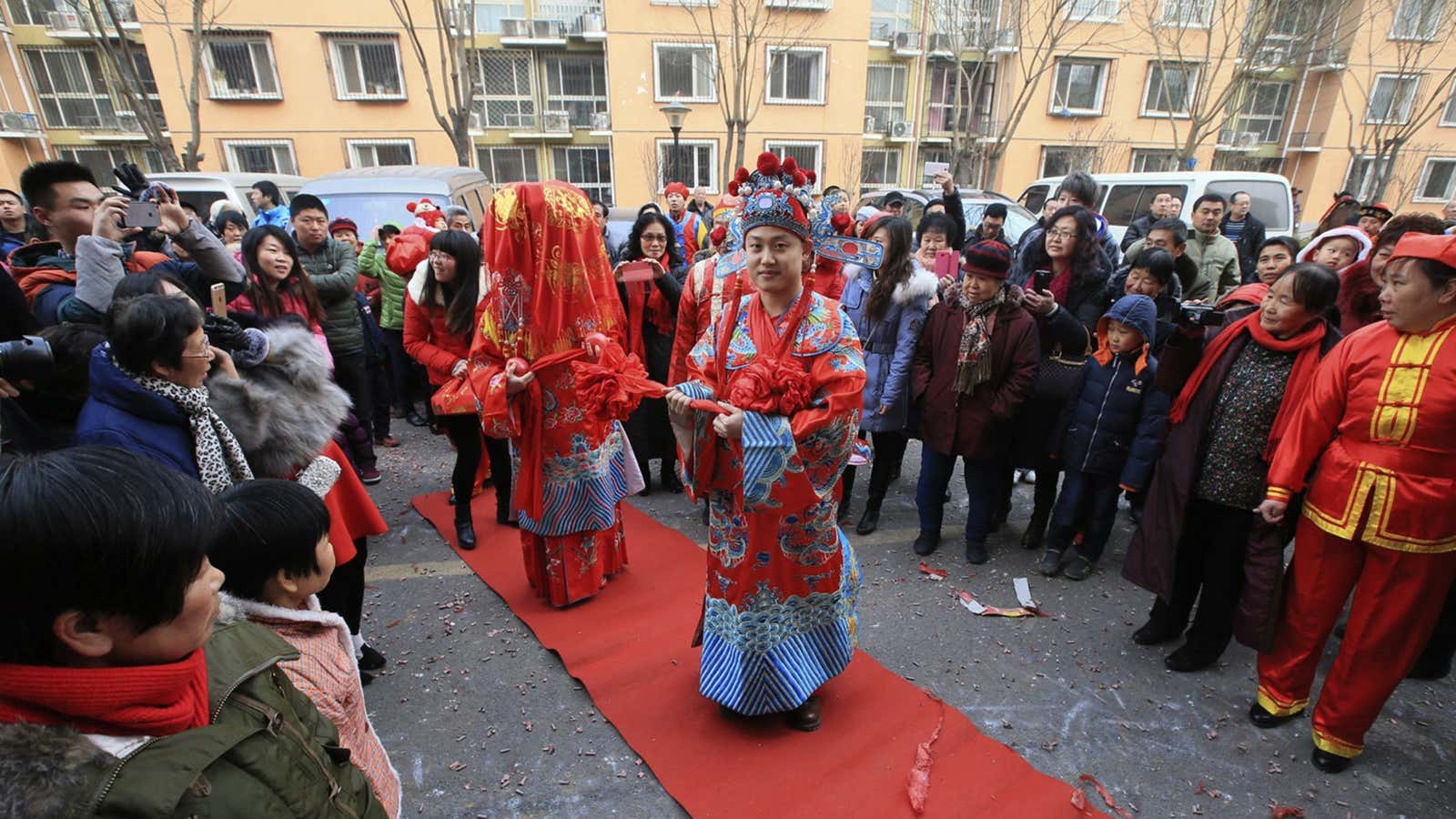For Chinese of modest means, a big wedding can actually mean bankruptcy. As a result, one county in China is cracking down on extravagant events in order to build a “virtuous and frugal society.”
On Jan. 1, new rules in Taiqian county in China’s northern Henan province went into effect in hopes of curbing extravagant weddings and funerals. The local government is encouraging residents to hold simpler events, according to its rules (link in Chinese, registration required) that dictate guidelines from the value of gifts to the size of banquets. Violations could be punished by public shaming.
The wedding rules include:
- People cannot trade marriage for money, nor can marriages be arranged.
- The length of time for certain wedding traditions should be trimmed down, though the government did not specify how long they should be.
- Mass weddings, where multiple couples are getting married in a single ceremony, are encouraged.
- The value of wedding gifts should be limited to no more than 60,000 yuan ($8,700), and the gifting of houses and cars is forbidden.
- Families should not borrow money to pay for weddings.
- The bride should have no more than 20 family members at the banquet, and the banquet should have no more than 10 tables.
- There should be no more than 12 courses during the wedding banquet. Cigarettes offered to guests should not be worth more than 10 yuan ($1.5) a pack and wines should cost 20 yuan ($3) or less per bottle.
- The convoy transporting the bride should have no more than six cars.
The funeral rules include:
- There should be only one band at the funeral and no more than five members in the band.
- Bottles of wine served should not be worth more than 15 yuan ($2.17) apiece.
- Funerals should not last longer than three days.
- Cremations should be preferred over burials.
Though Taiqian’s gross domestic product per capita was 26,146 yuan ($3,800) (pdf, p.75, link in Chinese) in 2014—much lower than the national average of 47,203 yuan ($6,800)—some families spend about 300,000 yuan ($43,000) for weddings. ”Many fall into poverty and can’t pay back the debts they borrow for a daughter-in-law,” said Li Hongwei, vice-director of the county’s culture committee (link in Chinese), which helped draft the document. Dowries can be especially high in remote areas of China because of the country’s gender imbalance, with 113.5 boys born for every 100 girls, caused by its one-child policy. In Anyang county, also located in Henan, a 27-year-old man recently paid nearly half a million yuan, equal to two decades of income for his family (link in Chinese), for a dowry.
Chinese netizens seem to have mixed feelings about the rules. On Weibo, China’s Twitter-esque social media (link in Chinese, registration required) site, one user said ”the government is meddling in people’s lives too much.” But some believe it has the right intention. “Many parents are in debt because of the weddings of their sons. These vulgar practices should be abandoned!” said another user.
